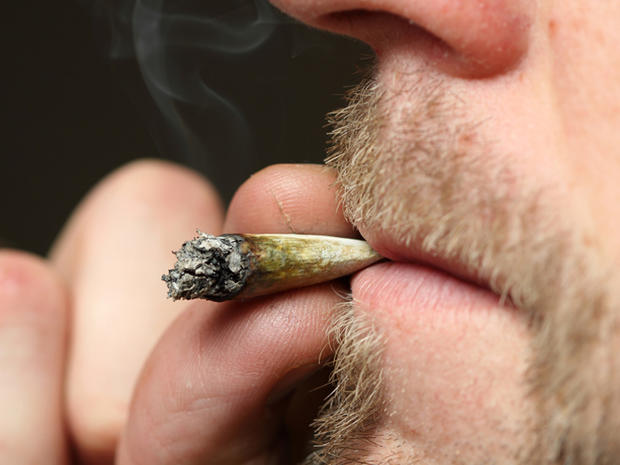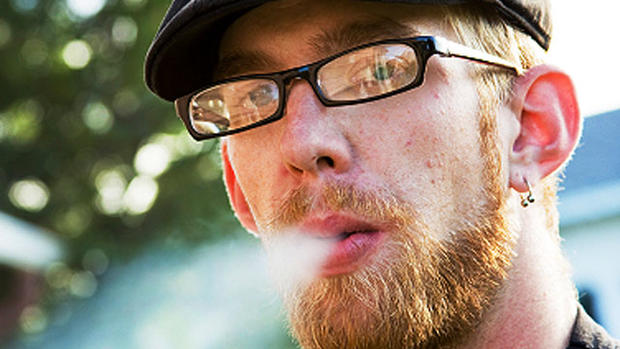Marijuana use tied to testicular cancer in young men, cocaine use linked to risk reduction
(CBS News) Marijuana smoking may lead some men to develop especially serious types of testicular cancer, a new study finds.
The study - published online September 10 in the American Cancer Society's journal, Cancer - suggests that not only recreational pot-use but medicinal marijuana-smoking may be risky for young males.
Is smoking marijuana bad for your lungs?
Smoking marijuana regularly as a teen may lower IQ scores as an adult
Medical marijuana: Which 17 states permit pot?
Researchers from the University of Southern California in Los Angeles surveyed 163 young men diagnosed with testicular cancer on their past drug use and compared that data to self-reported histories from 292 healthy men of the same age and ethnicities.
Testicular cancer is the most common cancer diagnosed in men between 15 and 34, according to the Mayo Clinic, despite being considered rare compared to other types of cancer. There are two main types of testicular cancer: nonseminomas, which are thought to be more aggressive, develop earlier and grow and spread more rapidly and seminomas, which aren't as aggressive and respond better to radiation treatments.
The USC researchers found that men who had a history of smoking pot were more than twice as likely to have nonseminoma testicular cancer or another subtype called mixed germ cell tumors, which like nonseminomas, are linked to a worse prognosis.
"The group that is at risk for developing these tumors is overwhelmingly young men," study author Dr. Victoria Cortessis, assistant professor of preventive medicine at USC's Keck School of Medicine, told NBCNews.com.
The researchers weren't certain what explained this effect, but speculate marijuana may act on the body's cellular network that responds to marijuana, the endocannabinoid system, that is tied to the sperm production.
Cocaine use on the other hand was tied to a reduced risk of these types of testicular cancer, leading researchers to conclude that cocaine may destroy sperm-producing sperm cells tied to cancer growth. But the researchers certainly don't recommend that men start using cocaine to reduce their testicular cancer risk.
"If this is correct, then 'prevention' would come at a high price," Cortessis said in a press release, adding that cocaine use could damage fertility.
Dr. Donald Abrams, professor of clinical medicine at the University of California-San Francisco, was not convinced of marijuana's link to testicular cancer, telling HealthDay that if true, there should have been spikes in the disease among California males during the 1960s and 70s but there were no such reported rate increases.
"If there were a true cause-and-effect relationship, one would see blips in testicular cancer rates associated with greater use of cannabis," he said.


